#UNITED STATES OF KAZAN
Explore tagged Tumblr posts
Text

#masc zoe. masc zoe please#im literally speechless#she needs to WEAR THIS EVERYDAY#AHHHHHHH#UNITED STATES OF KAZAN#zoe kazan#east of eden netflix
19 notes
·
View notes
Text

Gentleman's Agreement (1947) dir. Elia Kazan.
#Gentleman's Agreement#Elia Kazan#Gregory Peck#John Garfield#Dorothy McGuire#Anne Revere#Celeste Holm#Dean Stockwell#1940s#Old Hollywood#Films#Old films#Classic films#Old movies#Cinema#History#Historic#Drama#United States#Photography#Photographies#Black and White
59 notes
·
View notes
Text
Orthodox Gymnasium bombing 2021, Vladislav Struzhenkov.
Russia has seen a rise in attacks on schools in recent years but incidents at religious premises are rare. In October 2018, 18 year-old Vladislav Roslyakov killed 20 people and injured 70 at Kerch polytechnical college in Crimea. In September 2021, 18 year-old law student Timur Bekmansurov killed 6 people and injured 147 others in Perm State University. In May of 2021, a 19-year-old Ilnaz Galyaviev killed 9 people and injured 23 at Kazan school, Tatarstan.



Vladislav Struzhenkov was an 18-year-old graduate and former student of the Orthodox Gymnasium. Vlad was sentenced to 13 years in prison after detonating an IED bomb in the educational facility beside a monastery in Serpukhov, outside Moscow, Russia in December, 2021.


At 08:24 a.m, Vlad entered the premises and attempted to detonate an explosive device. The bomb went off at 08:26 a.m. local time, near the entrance of a school located on the grounds of the 14th-century Vladychny Convent. Several teenagers were injured in the blast. Vlad, who had attempted to blow himself up, wounded ten others, including himself. He was taken to the intensive care unit with traumatic injuries and had to have his leg amputated. While conscious, he informed investigators that he had been planning the attack for three months. It is suspected that he may have had an accomplice who assisted in preparing the explosive device.


ABUSE AND BULLYING
According to the teenager, the religious Orthodox school was considered to be abusive. State news agency TASS, citing a police source, reported that the teenager intended for the device to detonate during morning prayers, but it exploded at the school entrance instead. Authorities are working to determine the motives behind the attack.
However, according to the Interfax news agency, the teenager may have sought revenge for being bullied by nuns at the convent. Vladimir Legoida, a spokesman for the Russian Orthodox Church, stated that the church will provide assistance to "all those affected". "Such attacks, wherever they occur, cause the same grief and a strong desire to prevent them in the future," he said in a statement on Telegram.
Since President Vladimir Putin's election, the Russian church has increased its influence over traditionally secular institutions like schools. Introducing more religious lessons and clerics advocating for conservative textbooks.


VERDICT
Commenting on the verdict, a source in the Russian Church told RIA-Novosti:
"The act committed by Struzhenkov, of course, meets the criteria of a terrorist act, so the punishment is fitting. At the same time, of course, we’d like him to have the opportunity to repent of this crime, and we hope that the prison priests, as far as possible, will be able to help him in this. He’s a young man, and despite the severity of the crime he committed, we believe his life isn’t over, and his fate is better than that of those who committed suicide during such attacks or were eliminated by law enforcement agencies."
Vlad was sentenced 13 years in prison. It is also to note that Vlad's parents also said that recently their son was seen by a psychologist and drank antidepressants before the incident.

picture of vladislav's cane, the words written, "when you know nothing matters the universe is your's :)".
#orthodox gymnasium 2021#vladislav struzhenkov#quick info#posting analysis soon.#understandnotcondone
68 notes
·
View notes
Text
FVCKING FACTS
DOLLAR IS JUST PAPER
At the 16th annual BRICS summit (22-24 October), member states adopted the ‘Kazan Declaration’, with provisions to strengthen multilateralism, enhance cooperation for global and regional stability and security, foster economic and financial cooperation, and strengthen people-to-people exchanges for social and economic development. They also approved a BRICS ‘grain exchange’ to ensure food stability.
Some, like Zimbabwe-born motivational speaker Joshua Maponga in this clip, argue that fiat currencies, like the US dollar, Euro, British pound and Japanese yen, should be abandoned in favour of a gold-backed system.
At the summit, the bloc of five original members (Brazil, Russia, India, China and South Africa) plus four new members (Egypt, Ethiopia, Iran and the United Arab Emirates) welcomed using local currencies for transactions between BRICS countries and their trading partners.
Many African presidents have called for de-dollarisation, but the biggest win may be when Saudi Arabia pulls away from a decades-old petrodollar deal with the US.
The US dollar was pegged to gold’s value until US President Richard Nixon (1913-94) removed the gold standard in 1971. Since then, the US has printed the world’s reserve currency at will, sealing its status as a global hegemon.
So, how can countries break free of the US dollar's grip? Maponga argues gold is the answer.
35 notes
·
View notes
Text
In Ukraine’s prolonged struggle against Russia, the election of Donald Trump as the next U.S. president was a black swan event.
Among other positions, Trump ran on the promise of extricating the United States from the conflict in Ukraine. His closest allies have openly disparaged Kyiv and made overtures to Russian President Vladimir Putin. Thus, with this transition of power begins a new chapter of the war in which Western support for Ukraine could fall by the wayside.
Outgoing U.S. President Joe Biden’s belated decision to allow Ukraine to use U.S. missiles to strike targets deep within Russian territory, a critical condition of Ukrainian President Volodymyr Zelensky’s “victory plan,” is hardly a godsend. These missiles cannot singlehandedly change the course of the war, and they put Zelensky in an awkward position. Striking Russian targets will trigger not only the wrath of Putin, but also that of Trump, who will undoubtedly view any escalation as a shot against his own prospects for dealmaking.
With Trump making threats to pull out of NATO and cut a deal with Putin, Europe is also having second thoughts on backing Ukraine. German Chancellor Olaf Scholz spoke with Putin on Nov. 15 about bringing an end to the war, while Czech President Petr Pavel announced plans in October to send a new ambassador to the Czech Embassy in Moscow in early 2025.
Meanwhile, United Nations Secretary-General António Guterres recently attended the annual summit of the BRICS countries—Brazil, Russia, India, China, South Africa, and several recently added members—hosted in Kazan, Russia. The U.N.’s involvement in an event hosted by a country engaged in a war of aggression, whose president is wanted under an International Criminal Court warrant, sends a disheartening message.
Almost three years into Russia’s full-scale invasion, the West is tired. It no longer has the political will to help Ukraine win by military means and is seeking a settlement with the aggressor instead.
The U.S. shift toward isolationism may hasten the inevitable: Ukraine and the West will soon find themselves negotiating with Russia to define the terms of a settlement—and, by extension, shaping a new world order. This emerging order will not be the rules-based system established after World War II, but one driven by idiosyncratic dealmaking among strongmen.
The problem is that any deal will amount to Ukraine’s—and the West’s—capitulation to Russia.
A bad peace is better than a good quarrel, according to a Russian proverb. If the West is set on securing this “bad peace,” then it must have a negotiating strategy along four critical parameters: territories, security guarantees for Ukraine, reparations, and sanctions.
Even before Trump’s election, some of Ukraine’s staunchest allies began expressing the view that Ukraine would have to accept some loss of land. The most obvious settlement strategy, then, would likely involve buying Ukrainian and European security with territory—possibly including Donetsk; large chunks of the Luhansk, Zaporizhzhia, and Kherson regions; and the peninsula of Crimea, which Russia first seized in 2014.
This outcome is a far cry from the Western leaders’ earlier commitments to Ukraine’s territorial integrity and hopes for regime change in Russia, but realpolitik leaves little room for moral considerations.
Should Zelensky agree to this loss of territory, the only realistic security guarantee for Ukraine would be membership in NATO. Yet this runs counter to what U.S. Vice President-elect J.D. Vance has lobbied for: a demilitarized zone along the current front lines and an enduring commitment to Ukraine’s neutrality.
The next White House does not seem to have a plan for what happens to Europe in a few years, when it would face a revanchist Russia with a subdued Ukraine at its Western borders. Such an outcome is not in Trump’s best interest. Another option, therefore, may have Trump concede to Ukraine’s membership in a new NATO—one without the United States, perhaps—leaving Europeans to be the masters of their own security.
Battered and curtailed but still sovereign, Ukraine would gain a nuclear umbrella against future Russian aggression, and Europe would fund the postwar reconstruction. There would be no international tribunal and no reparations. (Putin won’t be negotiating his own sentence.) Sanctions against Russia would remain for the time being. Europe would accept the occupation de facto, but it wouldn’t de jure recognize the territory as Russian land.
It will be difficult to come up with a deal that satisfies all parties. But in any negotiation, reaching a mutually satisfactory outcome depends on the motivation and constraints of those involved. The West is motivated to settle in Ukraine because it is tired of war, and because Trump is uninterested in leading the existential fight for democracy. Ukraine, understanding that it cannot win on its own, can be motivated to settle in order to stop the now-pointless bloodshed.
Putin’s motivations are murkier. In fact, a closer look would reveal that Putin has no need for lasting peace.
Putin’s megalomaniacal intransigence is now reinforced by his perception that he is winning, even if it is taking longer than he hoped. Piecemeal shipments of Western military aid have made Russian advances slow and painful—but they have been advances nevertheless. While Ukraine’s ability to affect Russian military logistics was until recently severely hampered by Western restrictions, the Russian army has faced no such limitations, regularly bombing civilian infrastructure and military targets alike.
In wars of attrition, the side with more resources is poised to win, and Russia still mobilizes resources with frightening force. Russia has activated the economic and cultural mechanisms necessary for around-the-clock military production—bread-making factories churning out drones, schoolchildren making camouflage nets, and old Soviet tanks hauled out of Siberian forests and shipped to Ukrainian front lines.
Now that the economy has been switched on to military footing, there is no shortage of munitions. Meanwhile, government payouts ensure an ample supply of volunteers to enlist in the military, meaning Russia does not have a manpower crisis like Ukraine does.
No human toll is too high for Russia. During World War II, Russia lost more than 27 million people—the largest number of fatalities of all involved. Peter the Great’s 18th-century Great Northern War, which established Russia’s power in the Baltics, lasted 21 years and incurred enormous casualties, as did the 25-year-long Livonian War fought by Ivan the Terrible in the 16th century.
Russia has already suffered upward of 700,000 people dead or wounded during the Ukraine war, according to estimates from the National Interest. But with families of dead soldiers mollified by the “coffin money” they receive, society writ large has not budged in its support for the war. It will likely stay that way short of another mobilization.
It certainly helps that the brunt of the war is borne by recruited volunteers, who sign up to fight to improve their and their family’s economic standings, and by convicts—both groups making up a significant number of those killed and wounded in Ukraine. Another large constituency fighting Russia’s war is national minorities, often from depressed economic areas and the lowest strata of society. And now, those minorities are joined by North Korean soldiers and potentially by citizens of the other dictatorships that Putin courts.
Contrast this low visibility of Russia’s war toll, further obscured by Kremlin propaganda, to its loudly celebrated nativist successes. In the last two years, not only did Russia fail to fold under the weight of Western sanctions, but it also managed to build parallel economic, financial, and cultural structures that are independent of the West.
Economically, Russia has reoriented itself toward the East, increasing trade with China, India, and other countries in Asia and the Middle East. It has shifted its energy exports away from Europe and developed domestic production capabilities. Despite sanctions, oil money—the main source of Russia’s war financing—keeps flowing, albeit from a different direction than before. Cross-border payments are now handled through SPFS, a homegrown alternative to the SWIFT global financial system, and the Mir payment system that replaced Visa and MasterCard. Russia touts these systems to its BRICS partners as alternatives to “Western financial hegemony.”
If anything, the war in Ukraine has given Putin more money to play with than before. Assets belonging to Western companies exiting Russia have been nationalized or bought for cheap and redistributed to businesses with ties to the Kremlin—one of the largest property transfers in Russia’s history. Cut off from Western banks, Russian oligarchs must invest their money domestically. Sanctions evasion schemes protect Russians’ access to Western consumer goods, creating enormous enrichment opportunities for Russian and Western business agents alike. Tankers shuttle Russian oil with payments cleared through offshore shell companies. Putin’s personal wealth, estimated at somewhere between $70 billion and $200 billion, remains safe. Though he is a product of a socialist state, the Russian leader is a master of capitalism.
Cultural shifts in Russia increase Putin’s confidence in victory. What little dissent remained before the war has largely been rooted out, with Russians closing ranks around their leader. According to a recent poll conducted by the Levada Center in September and October, more than two-thirds of Russians who said they want the war to end are against returning Russian-occupied territories to Ukraine.
On the global stage, Russia has managed to upgrade its status from a regional power to a leader of the anti-Western coalition. These coalition members have their own stakes in Ukraine. A Russian victory would embarrass the United States, weakening its influence in Asia and helping China. North Korea has found exports—bad shells and soldiers—that it can exchange for food, money, and energy. And Iran is happy to keep the United States distracted from the Middle East.
Even if Putin wanted to end the war, it would entail serious risk for his regime. Drones, shells, and missile production would have to be scaled down, ending the economic boom. The sudden drop in government spending would create real prospects of an economic collapse. Around 1.5 million veterans would have to be pulled out of Ukraine to find new roles in a corrupt Russian society. The manufactured sense of national unity would give way to envy that beyond the border, on Russia’s “ancestral lands,” Ukrainians are thriving under European Union and NATO banners.
Taken together, in a country reacclimatized to grand-scale violence, the prospect of revolt becomes clear and present. To find an outlet for that aggression, Putin would have to start a new war not long after agreeing to settle for peace.
Ultimately, the status quo—an ongoing border squabble with conventional weapons—suits all but Ukraine and Europe, for which security deteriorates in direct proportion to Putin’s success.
The Putin that the West would face at the negotiating table is a former underdog—a man on a mission to free the world from what he has characterized as Western “hegemony,” his economy thriving, his new and old friends paying court, and his people unified behind him.
He is not, however, as invincible as he seems. The BRICS countries are not rushing to replace SWIFT with the Russian alternative. By putting all his economic eggs into the military basket, Putin has siphoned off resources from everywhere else, an unsustainable move. Inflation is real, and the ruble is weakening. Even the overheated military sector can’t keep up with demands. Moreover, as a student of Russian history, Putin knows that the support and adoration of the Russian masses can turn on its head overnight.
But Putin also knows how to keep a poker face. Having staked his survival on this war, Putin would be negotiating from the position of strength and with obligations to his domestic and international stakeholders in mind.
He has already shot an opening volley at the U.S. president-elect: After a call during which Trump told the Russian leader not to escalate in Ukraine, Russian state television released a special on Melania Trump’s modeling career, including nude photos of the once and future first lady.
The West, meanwhile, will be negotiating from a position of inherent weakness. After tiptoeing around the Kremlin’s red lines throughout the war, Western leaders have signaled their readiness to consider cessation of a large chunk of Ukrainian territory, wishing away what little leverage they had.
There is nothing stopping Putin from believing that he can’t get more. Unless Russia is decisively defeated on the battlefield or Putin is given precisely what he wants, he will not stop.
Of the options put forward for a negotiated solution, the only one that Putin would agree to is the one that gives him Ukraine’s capitulation on a platter. He will never agree to a thriving, independent, armed, and Western-aligned Ukraine on his border, because he would lose too much face. Putin will therefore demand an unviable Ukraine—without an army and without NATO membership—and, in effect, a Western surrender.
The issue of European security cannot be solved by a settlement with Moscow because appeasement only increases the aggressor’s appetite. Only the containment of Putin’s expansionism by military means will remove the existential threat to his neighbors. So long as there is an aggressive, revanchist Russia in the picture, lasting peace is an illusion.
32 notes
·
View notes
Text
Brazil criticizes countries’ omission regarding Gaza Strip

Speaking on Thursday (Oct. 24) at the BRICS summit in Kazan, Russia, Brazilian Foreign Minister Mauro Vieira criticized the omission of countries regarding the situation in the Gaza Strip. At the same time, he praised the position of countries from the Global South that are trying to mediate in the conflict in the Middle East.
“It was the countries of the Global South that voted in favor of the UN General Assembly resolution calling for a cessation of hostilities. Meanwhile, the role played by other countries has been disappointing, to say the least. Those who claim to be human rights defenders are turning a blind eye to the greatest atrocity in recent history,” said the minister.
The minister said that the situation in Gaza—considered by Brazil and other countries to be a genocide against the Palestinian people—has undermined the authority of the UN Security Council and the integrity of international humanitarian law.
There will be no peace without an independent Palestinian state, a solution that has been rejected by the Israeli government, he pointed out. “The decision on its existence was made 75 years ago by the United Nations. But the same UN that created the state of Israel today finds itself with its hands tied,” he added.
Continue reading.
#brazil#brazilian politics#politics#palestine#israel#mauro vieira#foreign policy#image description in alt#mod nise da silveira
14 notes
·
View notes
Text
Edit: There is now an official English translation of the whole article by Meduza themselves: https://meduza.io/en/feature/2023/06/03/the-only-thing-worse-than-war-is-losing-one
Meduza is a Russian- and English-language independent news website, headquartered in Riga, Latvia. It was founded in 2014 by a group of former employees of the then-independent Lenta.ru news website.
It asked the readers that supported the war to explalin why.
Sadly the answers paint a very bleak pictures of even young Russians reading independent media.
Some translated statements (feel free to correct if translated wrongly)
Andrey
35 years old, Volgograd
War ends when one side wins. Russia's defeat would mean national humiliation, which cannot be allowed. Consequently, one must win - there is no choice anymore.
Alexei
24 years old, Yakutsk
I do not support the war, but I do not want Russia to lose either.
Pavel
30 years old, Germany
I am angry at both sides of the conflict.
Anonymous reader
38 years old, city not specified
The only thing worse than a war is a lost war. It was an insane mistake to start it, but now it must be won, or else we will have the woe of the defeated. I don't support Putin, damn him.
Anonymous reader
36 years old, Tyumen
I'm not going to pay reparations for the mistakes of others for the next 20 years. No one talks to the losing side.
Nikolai
27 years old, Austria
I think the Western point of view is not quite right and agree with Putin's terminology of a unipolar world with double standards.
Artem
40 years old, Berlin
I have lived in Germany for 20 years and have never seen such propaganda. Western politicians and media have taken an absolutely one-sided position: Russia is the aggressor, Ukraine is a heroic state, Putin is always wrong, everyone looks into Zelensky's mouth.
Ruslan
28 years old, Kazan
I neither support nor condemn Russia for the war. I believe that since Russia started the war, it showed the weakness of its diplomacy and its inability to negotiate with a neighbouring state. However, I also do not support the point of view of those who compare Russia almost to Nazi Germany.
First of all, Ukraine had a choice; it could have reached an agreement with us in the early days of the war before things went too far and met our demands. It would have lost territories, but would have kept itself as a state. Is land more important than human lives? Therefore, Ukraine also bears some of the blame for the lives of those people who died. I am sure that people living in the territories that would have been handed over to Russia would certainly not have made their lives worse. Perhaps somewhere even better.
Sergey
27 years old, Perm
I support the actions of my president and my country. Yes, initially I didn't quite understand the point of this whole "operation", but after a while I saw the Russophobic statements both from Ukraine and from the European Union and the United States. Anyone with critical thinking and at least some common sense understands: Russia is not a "terrorist state", we are only defending our interests and sovereignty. That is why I, like most Russian citizens, fully support the UAS, and if I have to go to war, then I will go.
My personal favourite
Anonymous reader
30 years old, Astana
In a year and a half, [my] authority figures and moral compasses have turned into traitors (who wish harm to the citizens of their country, call for sanctions and do not try to lift them), shameful people (who offer to surrender to mercy and blame themselves), infirmities and liars.
I still believe that Russia got into this war for nothing, very much for nothing. But the way out offered by those [politicians] I [used to] hope for is shameful, painful, humiliating and deceitful. It is better to wait for those who will replace Putin: Russia is full of smart people.
Repenting for three [next] lives, giving up nuclear weapons and paying reparations - thanks, no thanks. I hope that the war will end as soon as possible and that as few people as possible will die in it, both Russian citizens in the first place and citizens of Ukraine, and if I have to go to war, then I will.
#russia#ukraine#journalism#then again#The Russians had access to all the information in the world when they attacked Georgia in 2008 or when they attacked Ukraine in 2014#war in ukraine#yeah ok wasn't smart to start the war but suffering through the consequences?no thanks
97 notes
·
View notes
Text
The BRICS sound like the original United States, a confederation of independent, sovereign states, rather than the more modern version of the US, in which all the states are under Washington’s thumb.
Bill Bonner and Tom Dyson
Tuesday, October 29th, 2024
Bill Bonner, writing today from Baltimore, Maryland
Where’s Kazan? Who cares?
We didn’t know and didn’t care either. But, for those curious, it is in Tatarstan, a republic in Russia, not an independent country. It is located about five hundred miles east of Moscow, between the Volga and Kama rivers. As for the people, they are Turkic speaking descendants of the Golden Horde... and they eat their meat raw.
That’s probably all you need to know about it. But the meeting just held in its capital city, Kazan, may be worth more attention.
The western mainstream press mostly ignored the BRICS meeting in Kazan last week. Delegates from thirty-nine different countries, representing most of the world’s population, held a historic get-together; the western media didn’t find it worth mentioning.
Share
All we knew about the BRICS summit was what we got from ���alternative’ sources. Then, yesterday, a dear reader from Montreal sent over some links to the coverage in the French press. One interview in particular, with Pascal Mas, helped us to understand what the BRICS are up to.
You’ll recall that it wasn’t that long ago that, apart from the US and its Western allies, the rest of the world was “developing” or the “Third World”... or what Donald Trump might call “sh*thole countries.” Whatever you called them, they didn’t matter very much.
But now, all of a sudden, the sunlight seems to reach the “Global South.”
3 notes
·
View notes
Text
Will BRICS Sink the West’s Regime of War, Sanctions and Genocide?
youtube
Roger McKenzie – International Editor of the Morning Star and member of the Communist Party of Britain joins the show to discuss the 16th annual BRICS summit of around 20 world leaders in Kazan, Russia. The BRICS have already called for a ceasefire in Gaza, but will their efforts to challenge dollar dominance weaken the US-led regime of sanctions, never-ending wars and genocide?
Lidia Thorpe - a Gunnai, Gunditjmara and Djab Wurrung Senator for the Australian state of Victoria joins the show to discuss why she confronted King Charles at the Australian Parliament, shouting “You are not my king!” in a now viral moment. She will explain the UK’s role in the genocide of Australia’s First Peoples, the fight for treaty rights and solidarity with Palestine.
Manolo De Los Santos - Co-Executive Director of The People’s Forum and a researcher at Tricontinental: Institute for Social Research will discuss the total collapse of Cuba’s national power grid that left the country without electricity for several days. De Los Santos explains how the US’s brutal 60-year blockade has sabotaged the island’s power grid.
Ali Abunimah - Director of The Electronic Intifada joins the show to discuss the UK police raid on his EI colleague, journalist Asa Winstanley. Earlier this month, the counterterrorism police unit entered Winstanley’s home and seized his electronics for investigation of his social media posts. Abunimah will explain how anti-terror laws are systematically weaponized to silence Palestine solidarity journalists and activists exposing the ongoing genocide.
Ashish Prashar - Political strategist and former advisor to the Middle East peace envoy will discuss Secretary of State Antony Blinken’s 11th trip to the Middle East aimed at supposedly “reviving ceasefire talks.” After over a year of US-backed Israeli genocidal terror against Palestine and Lebanon and the growing threat of war with Iran, Prashar will discuss the failure of the so-called peace industry.
6 notes
·
View notes
Text
Where did the time go


#She is still mogging him almost 20 years later#nevel papperman plots#dano nation#paul dano#Zoe Kazan#UNITED STATES OF KAZAN
22 notes
·
View notes
Text
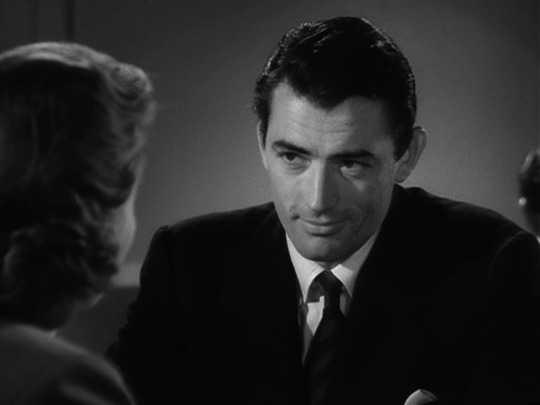
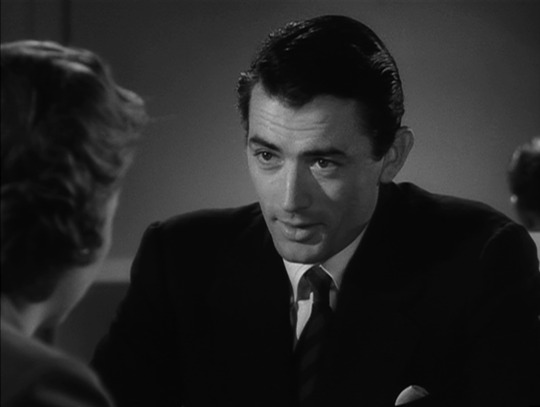


Gentleman's Agreement (1947) dir. Elia Kazan.
#Gentleman's Agreement#Elia Kazan#Gregory Peck#John Garfield#Dorothy McGuire#Anne Revere#Celeste Holm#Dean Stockwell#1940s#Old Hollywood#Films#Old films#Classic films#Old movies#Cinema#History#Historic#Drama#United States#Photography#Photographies#Black and White#Gentleman#menstyle#Manhattan#New York#New York City#Journalist#Writer#Film
34 notes
·
View notes
Text
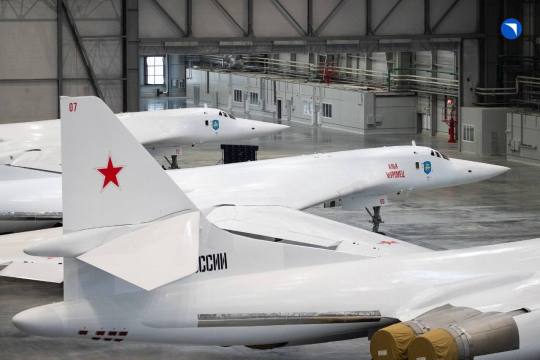
IMAGES: Russia resumes production of modernized Tu-160 bombers
Russia plans to eventually buy 50 new Tu-160M and modernize 15 existing Tu-160.
Fernando Valduga By Fernando Valduga 02/22/2024 - 08:17 in Military
Russia restarted the production of the Tupolev-160 strategic bombers, known as Blackjack, with the announcement coming from Sergey Chemezov, CEO of the state company Rostec.
"Restarting the production of the Tu-160 was quite a task for all Rostec affiliates. The project documentation was fully digitized within the tightest deadlines. The vacuum welding technique of titanium parts was restored and the production of fuselage units was resumed. Today we can safely say that we have been successful in all aspects," he said, according to the Russian state media.
The updated Tu-160M maintains the exterior design of its predecessor, but incorporates a technological base and completely new digital solutions.
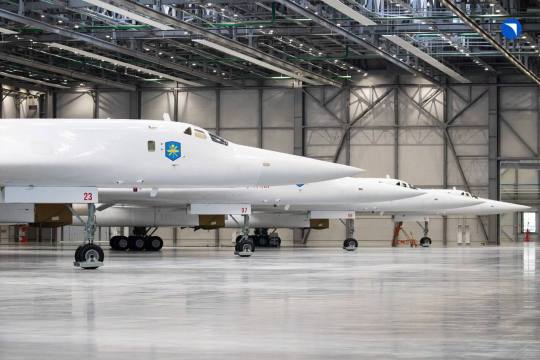
The recent visit of Russian President Vladimir Putin to the S.P. aviation factory. Gorbunov Kazan, in Tartaristan, where he inspected four updated strategic bombers, drew attention amid concerns about the country's military capabilities.
The Tu-160, recognized as the largest and most powerful supersonic aircraft with wings of variable geometry in the history of military aviation, underwent an update program initiated by Putin's decision.
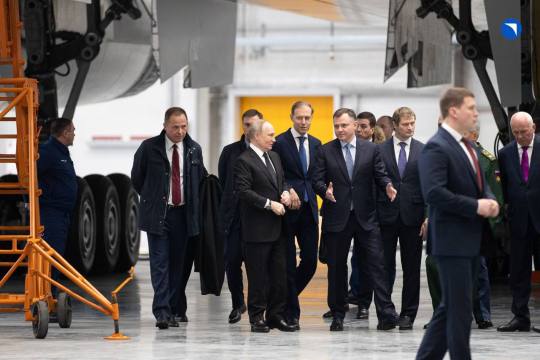
The government contract, signed between the Ministry of Industry and Commerce and the Tupolev design department, facilitated the digitization of the Tu-160M aircraft design documentation and the restoration of vacuum welding techniques for titanium products, leading to the resumption of the production of fuselage units.
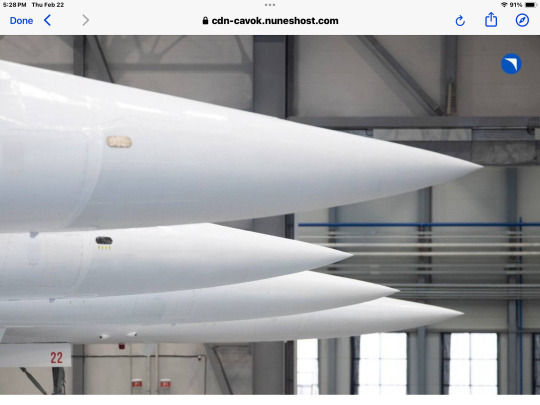
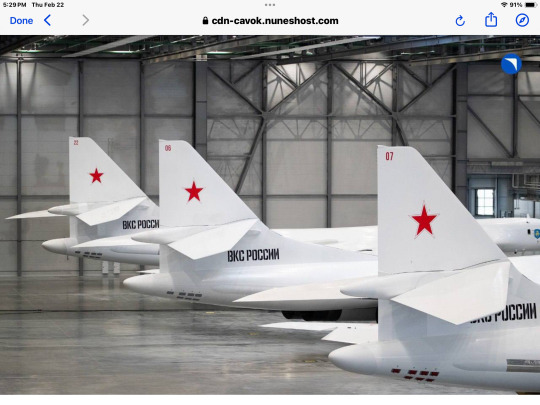
Rostec's main industrial companies in metallurgy, aircraft design, engineering and instrument manufacturing have played crucial roles in revitalizing their cooperation for the successful resumption of production.
The first Tu-160M strategic bomber built from scratch made its first 30-minute flight on January 12, 2022. It is equipped with modern weapons, electronic warfare system, as well as on-board electronic equipment.
According to reports, the Tu-160 entered Soviet service for the first time in the late 1980s, with production until 1995. In 2015, Russian President Vladimir Putin ordered the resumption of production of the updated variant of the Tu-160M to strengthen the strategy of the Russian Air Force in the capabilities of the bombers at a time of increasing tension with the West, and to compensate for delays in the future PAK-DA bomber program.
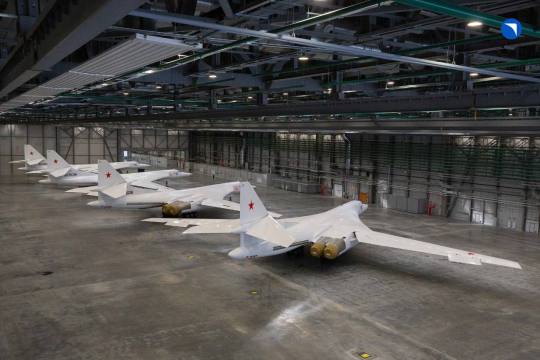
Russia plans to eventually buy about 50 Tu-160M bombers and is upgrading 16 existing Tu-160s to the modernized standard. With the first Tu-160M scheduled to be delivered soon, series production is expected to begin in 2023, at a production rate of at least three aircraft per year. This would fit the order for 10 aircraft in the period 2023–27.
The update of the Tu-160M is being implemented in two phases, with the first phase of the Tu-160M1 comprising the new navigation system K-042K-1 and autopilot ABSU-200-1, as well as the removal of some previous systems, such as pump observation systems. This variant of the Tu-160M1 has been operational in the Russian Air Force since the end of 2014.
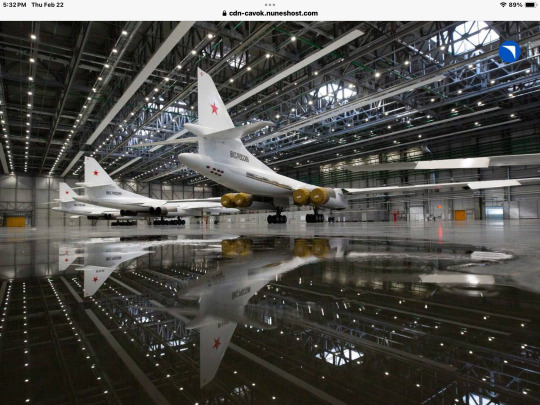
The second phase of the Tu-160M2 includes the new Novella NV1.70 radar, a digital glass booth, modern communications and anti-jamming equipment, updated NK-32 engines (designated NK-32-02) and modern conventional and nuclear weapons.
Tags: Military AviationROSTECRussiaTu-160 Blackjack
Sharing
tweet
Fernando Valduga
Fernando Valduga
Aviation photographer and pilot since 1992, he has participated in several events and air operations, such as Cruzex, AirVenture, Dayton Airshow and FIDAE. He has works published in specialized aviation magazines in Brazil and abroad. He uses Canon equipment during his photographic work in the world of aviation.
Related news
MILITARY
US released the F-16 to Ankara and F-35 to Athens, but with some conditions
21/02/2024 - 23:09
MILITARY
B-52 flies with Filipino fighters over the South China Sea
21/02/2024 - 22:24
MILITARY
Norway receives first C-130J-30 Super Hercules with Block 8.1 update
21/02/2024 - 21:56
MILITARY
Greece and France block supply of Turkish UAVs to Ukraine
21/02/2024 - 17:00
HELICOPTERS
Indra will develop H225M helicopter simulator for the Singapore Republic Air Force
21/02/2024 - 16:00
HELICOPTERS
Schiebel wins contract with Camcopter S-300 for the South Korean Navy
21/02/2024 - 14:00
11 notes
·
View notes
Photo

Early Soviet Cinematographers and Directors, Brothers Dziga Vertov (Denis Kaufman) and Mikhail Kaufman Uncredited and Undated Photograph
There was actually a third Kaufman brother who was also a cinematographer. Boris Kaufman was the only one of the Kaufman sibs to move to the west. He first emigrated to France, where he worked with Jean Vigo and then to the United States, where he was the fave cinematographer of Elia Kazan (and considering the politics of his brothers, there’s a certain irony to that) and Sidney Lumet, doing the camera work on “On the Waterfront,” “Baby Doll,” “Splendor in the Grass,” “12 Angry Men,” and “The Pawnbroker,” among many others.
39 notes
·
View notes
Text
This week’s BRICS summit in Kazan, Russia, features a new participant: Turkey. A Kremlin official leaked last month that Ankara had applied to join the grouping, following repeated expressions of interest over the years. A spokesperson for Turkish President Recep Tayyip Erdogan’s ruling Justice and Development Party (AKP) then conceded that “a process is underway.”
The BRICS grouping undertook a major expansion recently, adding Egypt, Ethiopia, Iran, and the United Arab Emirates in January, with Saudia Arabia still mulling whether to join. The acronym stands for the group’s original members: Brazil, Russia, India, China, and South Africa.
Still, Turkey’s BRICS application is a watershed moment in geopolitics. If Turkey joins BRICS as a full member or partner state, it would become the first NATO member and longtime candidate for European Union membership to have an active role in an entity seen by some analysts as a challenger to Western predominance.
Turkey’s diplomatic demarche is yet another sign that the global south is rising in world affairs, and it underscores the growth of active nonalignment as an ideology. But it is not a major break in Turkish foreign policy: Ankara’s BRICS application is an extension of its international balancing act, which aims to diversify alliances while maintaining ties with the West.
During two decades in office, Erdogan has promoted a non-Western-centric vision of the world and sought greater global autonomy due to frustration with the EU and the United States. For its part, BRICS is on a roll in terms of both membership and growing global clout. In addition to Turkey, countries such as Malaysia and Thailand have also applied for entry and sent envoys to this year’s summit.
Cooperation among BRICS members in energy, trade, and infrastructure development is growing at a fast clip. As a share of global trade, intra-BRICS trade in goods more than doubled from 2002 to 2022, reaching 40 percent. In 2015, the group created the Shanghai-based New Development Bank with $50 billion in capital. The bank, headed by former Brazilian President Dilma Rousseff, has since lent $33 billion for 96 projects.
BRICS now aims to create an alternative payment system to SWIFT, which it perceives as a Western-dominated international banking system. The project has taken on greater importance after Western countries disconnected Russia from SWIFT following the country’s 2022 invasion of Ukraine.
BRICS would benefit from Turkey’s accession. From a geopolitical standpoint, Turkey’s membership would enhance the group’s stature as a proponent of nonalignment, as opposed to a bloc with an anti-Western agenda—though it would certainly increase Western suspicions about Turkey. At present, the group is torn. China and Russia would like to build it into an anti-Western entity, while Brazil, India, and South Africa would prefer it to take a stance closer to nonalignment. Turkey’s presence is likely to strengthen the second view. The same goes for most of the new members, except for Iran, which is likely to hew close to China and Russia.
Joining BRICS would also put Turkey, a NATO member, in a privileged position: Having a foot in both camps increases Ankara’s foreign-policy leverage. “Being involved in these structures does not mean abandoning NATO,” Erdogan told journalists at the United Nations General Assembly in September. “We do not think that this alliance and cooperation are an alternative to one another.”
Despite Erdogan’s high profile in global affairs, Turkey’s domestic agenda has become increasingly challenging for the president. In March, the AKP lost ground in municipal elections, while economic growth has slowed and inflation runs rampant. But domestic constraints have not limited Turkey’s quest for influence across Eurasia; if anything, these international endeavors offer a welcome distraction.
Erdogan’s foreign policy is built on a complex blend of Turkey’s Ottoman legacy, nationalist aspirations, and a sense that the West’s best days are behind it. He seeks a more multipolar world, where Turkey can act independently of Western hegemony and search for strategic options beyond the West, even if this means partnering with historical enemies, such as Russia, or with countries that have pursued draconian policies against Muslim minorities, such as China.
Erdogan has sought to expand Turkey’s strategic wiggle room through diplomacy. He has signed energy deals with Russia, allowing the Russian state-owned utility Rosatom to build, own, and operate Turkey’s first nuclear power plant; mediated in armed conflicts such as the Russia-Ukraine war; and rallied support against Israel’s military actions in Gaza.
Turkey’s BRICS application is no different. It is not about breaking ties with the West but rather recalibrating them in favor of broader and more diversified alliances that are important to Turkey’s long-term national interests—particularly as Ankara’s prospects for EU membership grow dim and strategic ties with the United States weaken.
Turkey’s decades-long bid for EU membership has been marked by frustration. As Ankara has pushed for accession, EU responses have been lukewarm at best, especially after French and German opposition in the late 2000s. With a population of 87 million people, Turkey would be the largest country in the EU and the only Muslim-majority member. Democratic backsliding after the 2013 Gezi Park protests and the 2016 coup attempt have not helped its case. Today, while Turkey remains a candidate officially, its EU accession talks have stalled.
EU ambivalence over Turkish membership stems from concerns over Turkey’s human rights record and growing authoritarianism under Erdogan’s leadership. There are also disputes over Cyprus and maritime rights in the Eastern Mediterranean. The 2023 European Commission report on Turkey further strained relations; the report condemned Ankara’s democratic erosion and suggested that it is nowhere close to reaching full membership.
Turkey’s links with the United States have not fared any better. A major point of contention was Turkey’s purchase of the Russian S-400 missile defense system, which led to its removal from the F-35 fighter jet program. In response, Turkey opted for F-16s, taking advantage of the Russian invasion of Ukraine to upgrade its defense industry. The conflict also increased Turkey’s leverage over NATO, particularly as it stonewalled Sweden’s bid for membership.
Amid the war in Gaza, Erdogan’s alignment with the Palestinian cause and vocal criticism of Western support for Israel have deepened rifts between Ankara and Washington. In the past, the Turkish president also blamed the Obama administration for its support for the Kurdish-led Syrian Democratic Forces during the Syrian civil war, an issue that has lingered.
All the same, Turkey has proved that it is still indispensable to the West: It has acted as a key mediator in the Russia-Ukraine war, underscoring its delicate balancing act between NATO commitments and partnership with Moscow. In this role, Turkey has achieved impressive results—such as facilitating the largest prisoner swap since the Cold War.
For Erdogan, these developments have confirmed Turkey’s need to pursue a form of nonalignment and to shift its focus toward the global south and non-Western entities. Turkey’s pivot has led it to engagements across the Middle East, Africa, and Latin America, where Ankara has expanded its networks and business. In this context, BRICS offers Turkey a unique opportunity to join a rising bloc that represents a significant portion of the global south as well as Russia and China—key actors in Eurasia.
In a world marked by great-power rivalry and competing grand narratives, Turkey stands to regain its role as a bridge between the West, global south, and Eurasian powers. The country’s unique position draws on its geographical location and imperial history. By applying to join the BRICS—an informal yet high-profile group—Turkey is signaling to the West that it should not be taken for granted.
7 notes
·
View notes
Text
The Battle for the Future of BRICS Has Just Begun

In a column last year about what was then still the proposed expansion of the BRICS organization, I ended by saying, “For Brazil, India and South Africa, the priority will be to make sure that new members don’t just serve as allies of China or friends of [Russian President Vladimir] Putin, but rather contribute to their visions of alternative global governance. They will also seek to ensure that they themselves do not lose influence to the new states that enter.”
When BRICS met last week in Kazan, Russia, it appeared that Putin and Chinese President Xi Jinping had won the initial debate on both counts. Four new members—the United Arab Emirates, Iran, Egypt and Ethiopia—attended the summit with full voting rights.
The entrance of the new member states shifted the balance of power within BRICS away from electoral democracies and increased the perception that the bloc is a club of autocrats aligned with China and Russia. While India’s giant economy and population mean it carries influence wherever it goes, the new members also diluted the overall influence that Brazil and South Africa have in the organization as well.
The perception that BRICS is simply a diplomatic tool for China and Russia was further amplified by the fact this year’s meeting was held in Russia, at a time when Putin has been largely absent from international meetings due to his invasion of Ukraine and the arrest warrant for alleged war crimes issued for him by the International Criminal Court. With representatives from over 30 countries in attendance as members, partners or observers, the meeting gave Putin a chance to shrug off diplomatic isolation and demonstrate he is still globally relevant. The attendance of the United Nations Secretary-General Antonio Guterres gave Putin an additional lift.
But Putin’s desperation to boost attendance at the event became a double-edged sword when Venezuelan President Nicolas Maduro made a surprise appearance. Having declared himself the winner of an election that he lost by 30 points back in July, Maduro also delighted in the opportunity to stretch his diplomatic muscles alongside leaders who would otherwise have avoided the controversy of being in the same room as him. For his part, Putin gave Maduro his full support.
Continue reading.
#brazil#russia#india#china#south africa#politics#brazilian politics#BRICS#international politics#image description in alt#mod nise da silveira
5 notes
·
View notes
Text
Tumblr's Guide to Shostakovich: Part 2- Background and Beginnings
Hello, and welcome back to Tumblr's Guide to Shostakovich, the series where I talk about the life and works of Dmitri Shostakovich! Today, I want to talk some about his family background, and about his childhood. The main sources I'll be using for this post are Dmitri Shostakovich: The LIfe and Background of a Soviet Composer by Victor Seroff and Nadezhda Galli-Shohat (who was Shostakovich's aunt), Pages From the Life of Dmitri Shostakovich by Dmitri and Lyudmila Sollertinsky, and Shostakovich: A Life Remembered by Elizabeth Wilson. Photos are from Dmitri Shostakovich: The Life and Background of a Soviet Composer and the DSCH Publishers website.
Dmitri Shostakovich was born on September 25, 1906, to Dmitri Boleslavovich and Sofiya Vasiliyevna (nee Kokaoulina) Shostakovich in St. Petersburg, Russia. His maternal grandfather, Vasiliy Jakovlevich Kokaoulin, hailed from Siberia and advocated for improved working conditions for miners in the Lena Gold Field, where he became the manager. Sofiya Vasiliyevna was one of six children, and studied music at the Irkutsk Institute for Noblewomen; her brother Jasha became involved with the growing revolutionary movement. When a student protest on Kazan Square in February 1899 was violently disbanded by armed Cossacks, Sofiya and her siblings became more deeply sympathetic towards the revolutionaries; her sister Nadezhda Galli-Shohat would become a member of the Social Democratic Bolshevik Party (she would later come to disagree with Bolshevism and emigrate to the United States in 1923).
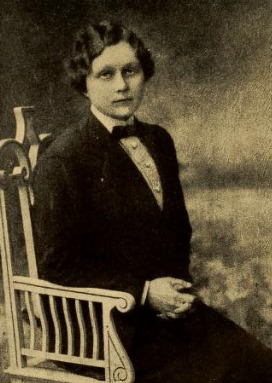
(Sofiya Vasiliyevna Shostakovich, the composer's mother. 1911.)
Shostakovich's father, Dmitri Boleslavovich Shostakovich, came from Polish origins ("Shostakovich" is actually a Russification of the Polish surname "Szostakowicz.") and worked as a senior keeper at the Palace of Weights and Measures. His father, Boleslav, was deeply involved in the Polish revolutionary movement, and organized the release of Jaroslav Dombrovsky, who had been imprisoned due to his part in the Polish Uprising. As a result, Boleslav was exiled to Siberia. (Side note- Shostakovich's first name was nearly "Jaroslav," but the Orthodox priest at his christening advised his parents to name him "Dmitri," after his father.)
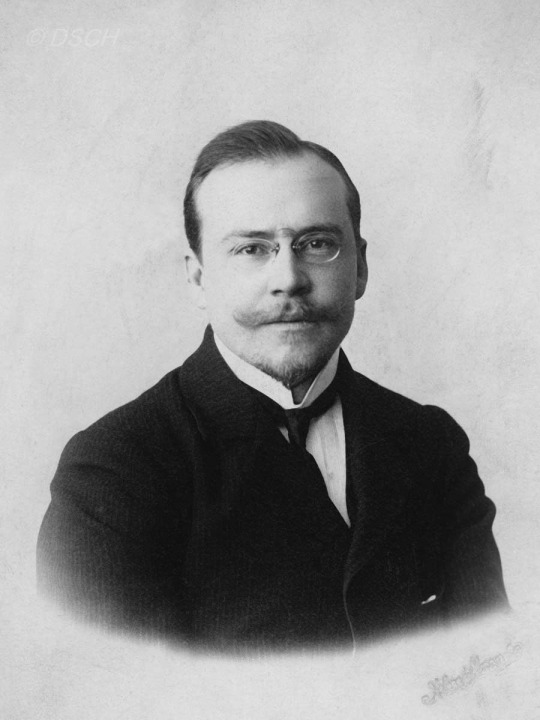
(Dmitri Boleslavovich Shostakovich, the composer's father. 1903.)

(The composer around age one and his sister Maria ("Marusya"), 1907.)
By the time Shostakovich's parents were raising their three children in a middle-class household on Nikolaevskaya Street, revolutionary sentiments were sharply rising; Shostakovich himself was born just a year after the "Bloody Sunday" massacre of 1905. However, another major component of the artist young Mitya Shostakovich would become was highly present in their home- music. His mother was a skilled pianist, and his father- a "kind, jolly man" who would sing to her accompaniments. Shostakovich would listen to his neighbour, Boris Sass-Tisovsky, play the cello, and the Shostakoviches would take their children to the opera. Seroff and Galli-Shohat include an anecdote illustrating the contrasting personalities of Sofiya and Dmitri B. Shostakovich: "Sonya [Sofiya] gradually weeded out most of the Siberian friends of Dmitri's [Boleslavovich] student days because, for her, there was too much of the "muzhik" [term for a male peasant] about them and in these days she sought a different society. Dmitri took all this reform very good-naturedly and only retained, in spite of all that Sonya could do, his heavy gait and his rough, Siberian-peasant way of speaking. Sonya would have despaired of his slangy speech except that she knew his gay and lovable disposition always won him friends wherever he went. "Sonya, Sonya," he would say, shaking his head and looking at her over the top of his glasses, "I'm a bad one. Squirt me another glass of tea."
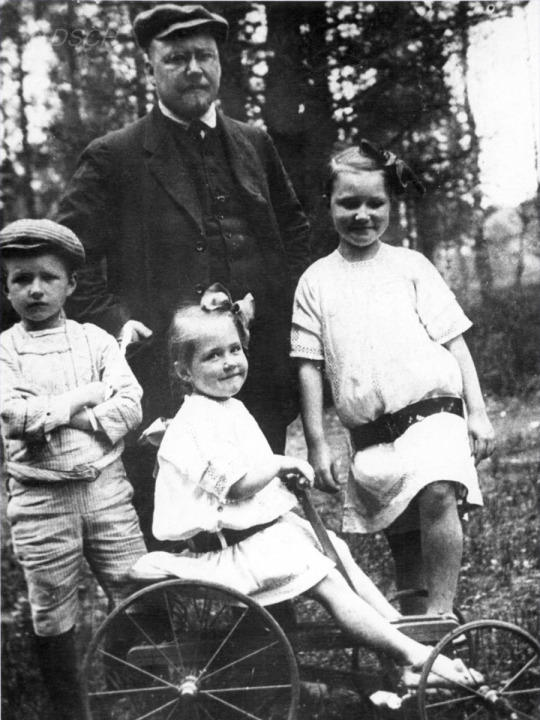
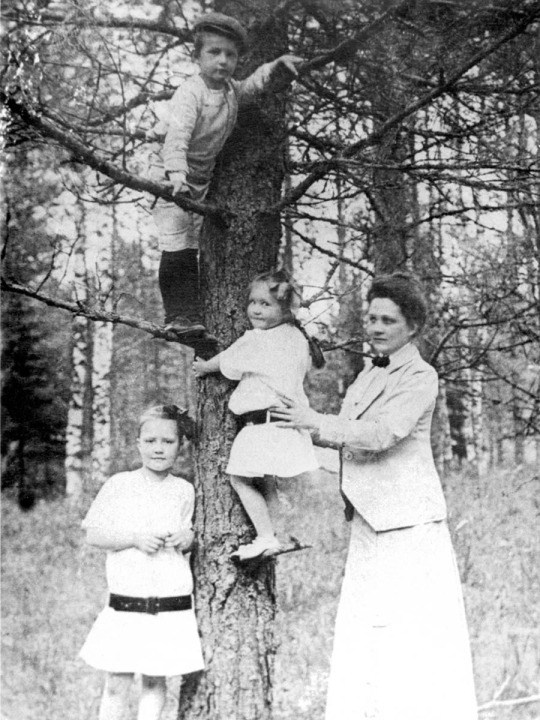
(Mitya, Maria, and Zoya Shostakovich with their parents, 1912.)
Despite an early recognition of his talents as a prodigy, Shostakovich was never pressed into music unwillingly; for the most part, he had a happy childhood with his sisters Zoya and Maria, gathering mushrooms, reading adventure books, and watching their father play solitaire (which would later become one of Shostakovich's favourite pastimes as well). However, at the age of nine, after attending a performance of Mussorgsky's The Tale of Tsar Saltan, Mitya was able to recite and sing most of the opera from memory the following day. That summer, in 1915, he began piano lessons. Among his first childhood works was the "Funeral March for Victims of the Revolution;" he recalled that he "composed a lot under the influence of external events," a trait that would come to follow him throughout his future career. He took lessons from Ignati Glyasser, and later Aleksandra Rozanova. By the time he entered the conservatoire at age thirteen, the city he was born in had been renamed to Petrograd; WWI had meant a Russification of the name "St. Petersburg" due to anti-German sentiment. In 1924, it would once again be renamed "Leningrad," following the death of Vladimir Lenin. (Today, the city is once again called "St. Petersburg," following the collapse of the Soviet Union in 1991.) Shostakovich's enrollment was on the recommendation of the composer and professor Aleksandr Glazunov, who would play a highly significant role in his conservatory years.

(Aleksandra Aleksandrovna Rozanova, Shostakovich's piano teacher.)

(Ignati Albertovich Glyasser with his piano class, 1917. Dmitri Shostakovich is located second from the right in the first row; Maria Shostakovich is located fourth from the right in the second row.)
In the next few entries, I will talk more about his adolescence and conservatory years, along with some drama in his personal life. ;) See you then!
#dmitri shostakovich#classical music#music history#soviet history#russia#classical music history#composer#russian history#shostakovich#tumblr's guide to shostakovich
42 notes
·
View notes